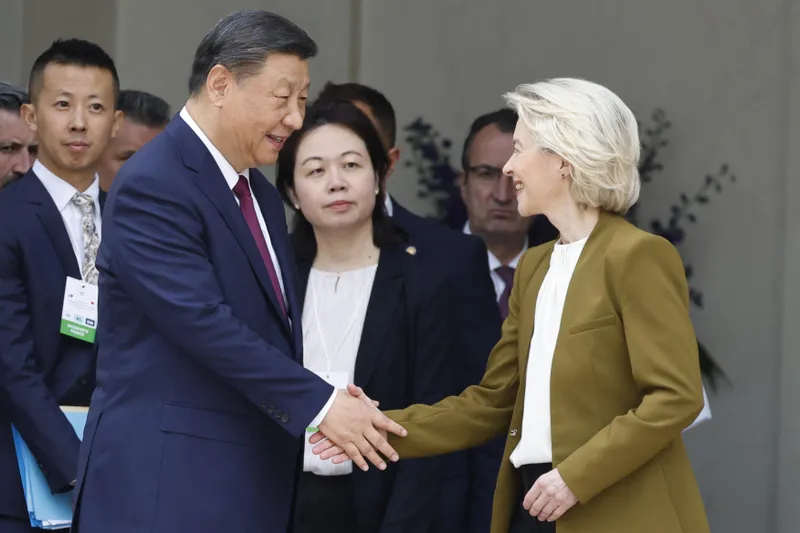BRICS+ Series: Iran’s Solar Energy Takeoff
Iran is rapidly emerging as a renewable energy powerhouse, making bold strides in solar energy expansion that signal a transformative shift—not just for the country, but for the broader BRICS+ alliance. In the past Iranian year alone (ending March 2025), Iran added an impressive 600 megawatts (MW) of solar power to its national grid—four times the previous annual average. This surge represents a turning point for both Iran's energy policy and the global South's efforts to build energy resilience and independence.
BRICS+ Series: US intensifies Chinese Chip Development Regulation
The US has ramped up pressure on China’s semiconductor ambitions by ordering top American software firms to halt sales of chip design tools to Chinese companies. The move, targeting EDA giants like Synopsys and Cadence, marks a major escalation in Washington’s tech clampdown and comes just as US-China trade tensions subdued.
Cairo's Emerging Tech start-up Hub
Discover how Cairo is rapidly becoming a tech startup powerhouse in the MENA region, driven by government support, a young STEM-focused population, and strategic partnerships. What does the future hold for Egypt's digital transformation?
Nuclear Negotiations and Western Hypocrisy
The nuclear standoff between Iran and the United States is often framed as a matter of international security, but rarely is it interrogated through the lens of fairness or consistency. At the heart of the matter lies a glaring double standard. Iran, a signatory of the Nuclear Non-Proliferation Treaty (NPT), is subject to strict inspections and legal obligations, while Israel – widely understood to possess a secret nuclear arsenal – faces no such scrutiny, having never signed the NPT. This contradiction is central to understanding why so many in the Global South view Western nuclear diplomacy not as a tool of peace, but as an instrument of geopolitical control.
BRICS+ Series: China’s Belt & Road Initiative is Advancing Ethiopia’s Infrastructure
Ethiopia's strategic partnership with China under the Belt and Road Initiative exemplifies a new development model for the Global South, as it aligns with BRICS' vision of infrastructure-led growth and cooperative partnerships.
Iran & Uzbekistan are Driving South-South Investment
As the global economic order continues to shift toward multipolarity, strategic cooperation among emerging markets is taking center stage. Within this context, the growing economic engagement between Iran and Uzbekistan, now both BRICS+ members involved in the BRICS+ cooperation frameworks, demonstrates the increasing importance of South-South collaboration.
BRICS+ Series: Unlocking Thailand’s Potential in Trade
Thailand, a new BRICS+ partner, faces significant economic challenges, including rising debt and factory closures, yet its membership may provide a lifeline for revitalising industrial policy and fostering regional cooperation
Digital Finance at the Core of Brazil’s Fintech Transformation
The Fintech Revolution in Brazil is reshaping its financial landscape, driven by the rapid adoption of digital payment systems like Pix, the rise of online lending platforms, and progressive regulatory frameworks. With over 80% of adults engaged in digital payments and a thriving startup ecosystem of over 1,500 fintechs, Brazil is emerging as a global fintech leader. However, regulatory and infrastructural challenges remain, even as innovations promise an inclusive financial future.
BRICS+ Series: Burundi’s war on Truth
When the president of the National Assembly of Burundi, Gelase Daniel Ndabirabe informed the country’s newly appointed human rights commission that their mission is to “fight and bring down” Fortune Gaetan Zongo who is the UN Special Rapporteur on Human Rights in Burundi, it was way more than a rhetorical misstep. It was a statement of war. Not a war against justice or a war against misinformation, but a war against scrutiny, truth and accountability.

